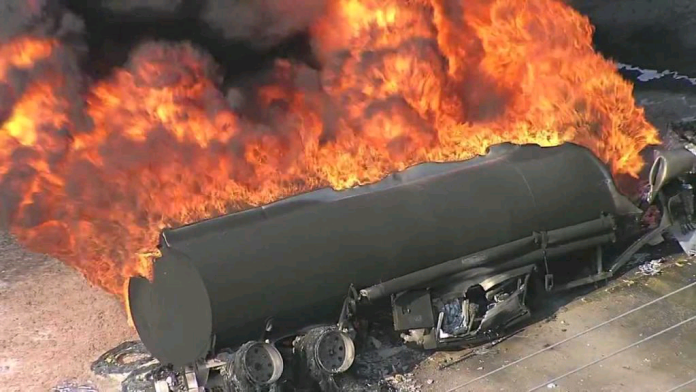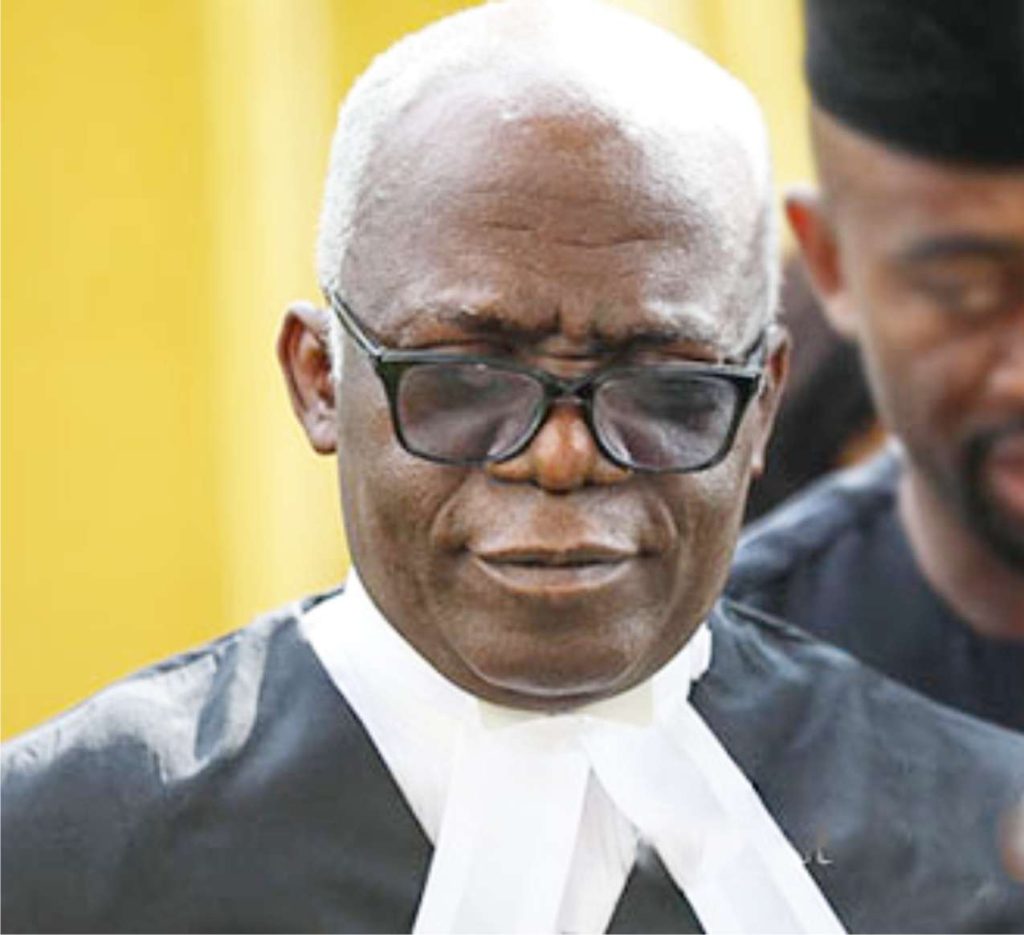No fewer than 555 persons lost their lives in different petrol tanker fire explosions across Nigeria between January 2020 and January 2025, a Federal Road Safety Commission data has revealed.
Joyce Alexander, Sector Commander, FRSC, Anambra State Command, made the data known in Awka, the state capital on Thursday.
She spoke during a town hall meeting on: “Tanker and Trailer Safety Challenges in Nigeria.”
Alexander said the crashes, numbering about 80, also resulted in hundreds of persons being injured, as well as buildings, vehicles, and other valuables worth millions being destroyed.
READ ALSO:
Fubara Ordered Rivers Assembly Bombing – Ex-Hos
LASU Confirms Tunde Akanni As Professor of Journalism
Dorival Junior Sacked As Brazil Coach
Atiku Denies Receiving Funds From Sanwo-Olu During 2023 Election
‘My Husband Makes Love From Midnight Till Dawn’ – Woman Seeks Divorce
She said that in 2020, there were 18 tanker explosions, resulting in 161 fatalities; 2021, 19 tanker explosions caused 55 deaths; while in 2022, 14 tanker explosions claimed 76 lives.
According to her, in 2023, 13 tanker explosions led to 118 deaths; and in 2024, 13 tanker explosions resulted in 85 fatalities.
Alexander added: “So far, in January 2025, there have been seven recorded tanker explosions.
“More than 2,000 trucks transport hydrocarbons daily on Nigeria roads and the neglect of safety can have dire consequences, including negative environmental impacts, loss of truck, lives and property.
“The most horrifying aspect of this menace is the scooping of fuel by the citizenry when tanker crashes or spillages occur.
“This exacerbates the casualties in the case of a fire outbreak.
“In Anambra, we have recorded four trailer-related crashes in three months, which claimed 24 lives and many injured.
“These are avoidable crashes and casualties.
“This town hall is to help us map out strategies on ways to stop the incessant crashes and explosions, to save lives and property.”
The Sector Commander said that the corps had put measures in place to ensure compliance to installation of speed limiting devices and other safety requirements in haulage vehicles.
She called for the training and re-training of tanker drivers, urging them on road safety rules.
Alexander also urged tanker operators to prioritise the maintenance of their vehicles to check brake failures, worn out tyres, manhole defects, and inadequate latching of the container.
She said: “We recommend valid vehicle registration and display, valid driver’s license class, and stiffer sanctions on operators whose tankers are involved in crashes, through legislation.
“Also, the establishment of rest areas in the state will prevent fatigue and we appeal to the police to free traffic checkpoints at the approach of articulated vehicles.”
Reacting to the situation, Uche Noah, the Divisional Police Officer of ‘B’ Division, Awka and a Chief Superintendent of Police, said that checkpoints could not be removed due to security concerns.
Noah also urged drivers to refrain from driving under the influence of alcohol or other illicit substances.
Some tanker drivers and transport unions highlighted poverty, impatience, excessive police checkpoints, economic hardship, and actions of the Anambra State Road Traffic Management Agency as key challenges affecting tanker drivers.





